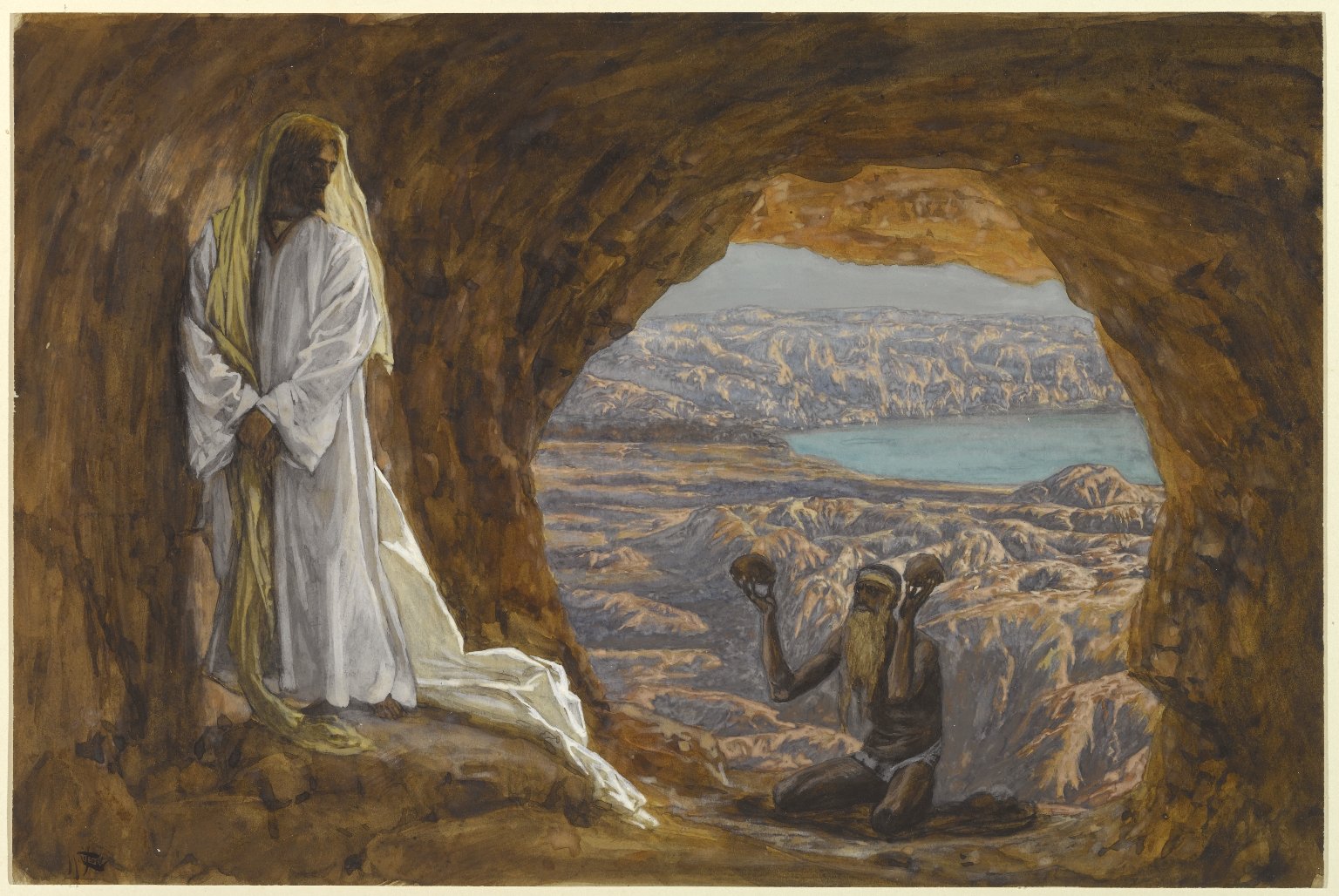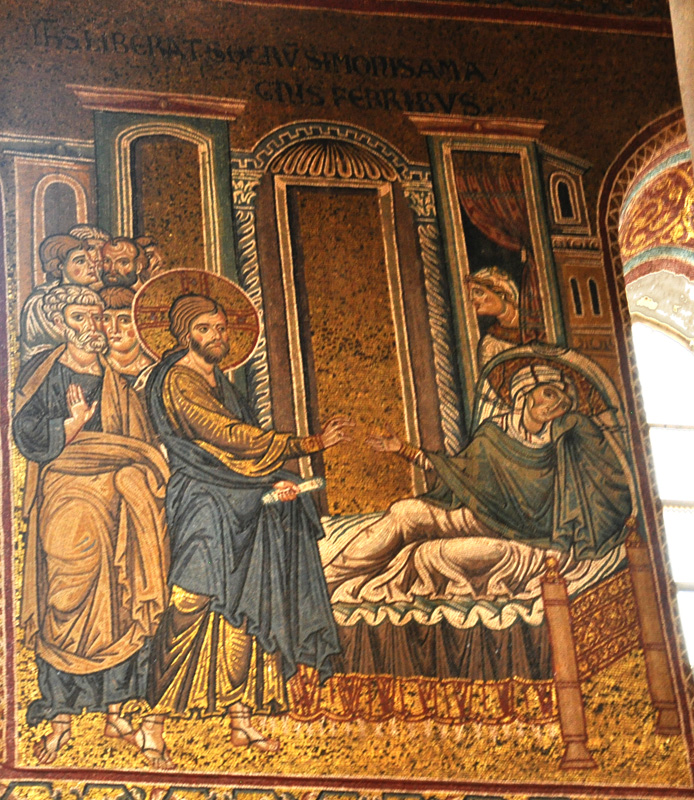The Bible can be read as an account of salvation history, beginning with the Creation of the Universe and culminating in our redemption in the Birth, Life, Passion, Death, and Resurrection of Jesus Christ. As such it is a series of covenants, promises between God and humanity. These begin with God’s promise to Noah after the flood, our first reading this morning. God promises not to destroy humanity. This is welcome news in a time of both pandemic and heavy rainfall. The rainbow is given as a sign of God’s love and faithfulness. This sets the tone for all the other covenants in the Bible.
Our second reading this morning, from the First Letter of Peter, draws a link between Noah and the ark as a sign of salvation, and baptism, by which humanity is saved. It is a timely connection to make since Lent is traditionally a time for preparation for Baptism at Easter. The wider account of salvation history and the life of Jesus in particular become our life as Christians in our baptism: we share in them, they become part of us, and form both who and what we are. We enter into the drama of salvation. We die to sin, and are raised to new life in our baptism. Through our new life in Christ, we follow His example, and prepare for our annual celebration of Holy Week and Easter by going into the desert with Him for the forty days of Lent, a time of fasting, prayer, and charity.
This morning’s Gospel reading takes us from Jesus’ baptism by John to the beginning of Christ’s public ministry, via forty days in the desert. There is so much packed into a few verses of Scripture, that we need to take a moment to examine what is going on, and how it can speak to us over the next few weeks.
Jesus is baptised, by John, not because needs to repent of His Sins, as He is without sin. Instead, He does so out of humility to the will of God the Father, and to show us the way to salvation: through His Suffering, Crucifixion, and Rising again to New Life. In the account of the Baptism we see and hear the Three Persons of the Trinity, present, connected, and united in Love: the voice of God the Father and the dove representing the Spirit, descending on the Son. It is a glimpse of Divine Glory, which awaits us in Heaven, the end and purpose of salvation history.
Immediately afterwards the Spirit drives Jesus out into the desert, to be alone with God. He prays and fasts in order to prepare Himself for the public ministry of the Proclamation of the Good News, the Gospel. Deserts are not places one would choose to spend six weeks. They are places that can be unbearably hot by day yet freezing cold at night, wild places, lacking water, dangerous, and on the margins.
The symbolism of the number forty is rich in the Bible. It signifies a time of trial or testing, and recalls significant biblical events. Firstly, In Genesis 7:12, earlier in the story of Noah, God floods the earth with water for 40 days. Secondly, in the story of the Exodus, the people of Israel spend forty years in the desert before they reach the Promised Land. Thirdly, Moses spends forty days with God on Mount Sinai before giving the people of Israel the law, the Ten Commandments. And fourthly, in 1Kings 19:8, Elijah fasts for forty days on the way to Mount Horeb, before talking to God and finding Elisha. All of these examples point to Christ and foreshadow His saving work.
While Jesus is in the desert, He is tempted by Satan. Unlike Matthew’s Gospel, which lists the temptations, Mark simply states that Jesus was tempted. Because Jesus does not sin, He is able to withstand temptation, His victory in the desert points to His great victory on the Cross. Christ then preaches to ‘the spirits in prison’ (1Peter 3: 19) saving humanity from sin and death, and restoring the hope of heaven. In the desert, Jesus is with wild animals, traditionally a sign of the Evil One. However, He is not harmed by them, as the creatures recognise their Creator, who is preparing to make a new Creation in Himself.
Jesus is ministered to by angels. He is the Beloved Son, in whom the Father is well-pleased, humble and obedient. After the trial of the temptations He is tired, and hungry. Temptation is a trying business, both physically and spiritually. This reminds us of the need for care, especially self-care, in our Lenten observances. Rest and nourishment are an important part of our spiritual and physical wellbeing, now more than ever.
After forty days, Jesus returns to Galilee and starts to proclaim the Gospel, the Good News of the Kingdom of God:
“The time is fulfilled, and the kingdom of God is at hand; repent and believe in the gospel.” (Mk 1:15)
This message is the same as that of John the Baptist (cf. Acts 19:4): Repent, turn away from your sins, turn back to God, and Believe the Gospel, proclaimed by Jesus Christ. As Christians, nearly two thousand years later, we believe and proclaim that same message. Jesus calls us to turn away from sin, to turn back to God, to trust Him, and to know that He longs for our healing and reconciliation.
Jesus is able to resist Satan’s temptations because He is humble, because He has faith, and because he trusts in God. It certainly isn’t easy to do the same, but it is possible. It is far easier when we do this together, as a community, which is why Lent matters for all of us. These weeks are a chance to become more obedient, and through that obedience to discover true freedom in God. It is an obedience which is made manifest on the Cross — in laying down his life Jesus can give new life to the whole world. He isn’t being spectacular — he dies like a common criminal. He has no power, he does not try to be relevant, he is loving and obedient and that is good enough.
It was enough for him, and it should be for us. As Christians we have Scripture and the teaching of the Church, filled with His Spirit, to guide us. We can use this time of prayer and fasting to deepen our faith, our trust, our understanding, and our obedience. We can use this time to become more like Jesus, to be fed by His Word and by the Sacraments to become more humble, and more loving, living lives of service of God and each other. We can use this time to support each other, so that we might grow in holiness as the people of God, and to sing the praises of God the Father, God the Son, and God the Holy Spirit. To whom be ascribed as is most right and just, all might, majesty, glory, dominion, and power, now, and forever. Amen.


